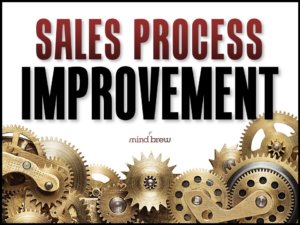For many years now, we’ve been staunch and vocal advocates of root cause diagnostics. Early on, we recognized that far too many groups were struggling to effectively address their sales problems because they were:
- Jumping to conclusions about the proximal causes of the symptoms they were trying to mitigate. (These proximal “causes” are themselves very often just additional symptoms.)
- Pointing the finger at individual people as being the cause or source of their issues. (As individuals operate with a system, this is rarely accurate and almost always unproductive.)
So beating the drum on this topic became part of our ongoing mission. And we’re really pleased to see that so many have gotten into the habit of performing root cause diagnostics to sidestep these particular issues and more.
That being said, however, there is a concept or axiom within the diagnostic process itself that I believe warrants more attention and further explanation…
The reality is that behind any given sales problem or set of problematic symptoms, there will always be multiple root causes and contributing factors. And it’s very important to identify and acknowledge all of these root causes…even though you may choose to only address the one that seems to be having the greatest impact.
You see, through root cause diagnostics you’re not really identifying THE cause of your sales problems. Rather, you’re identifying A cause of your sales problems. And then, you’re identifying another. And most likely, another and another. Ultimately, you might identify five or six things that are all contributing in combination to the problem you’re trying to correct.
Of course, these root causes won’t all be contributing to the same extent. And you’ll need to focus your limited resources where they can have the greatest effect. But even so, you shouldn’t focus on “the biggie” and disregard the others.
Why? Because in doing so, you could be setting your team up for disappointment, frustration, or even failure.
In truth, it’s very easy to develop a sort of myopia with respect to the root cause you’ve decided to focus on. It’s easy for your team and others to forget that there are other root causes and contributing factors involved. And as a result, people can be disappointed or upset when the symptoms aren’t eliminated entirely, even though you only addressed just one of the contributing factors.
Beyond that, you also need to keep in mind that you might be wrong about “the biggie.” While you’ll do your best to understand the relative contribution of the various causes and factors, you won’t have perfect information and you can’t be absolutely certain.
So, one of the other root causes you’ve identified might actually be having a much bigger influence than the one you think is the biggie. Or, it could even be that two or three seemingly minor contributing factors are working so closely together in combination that they are having a magnified, compound impact and need to be viewed as one major root cause.
In any case, it’s always best to maintain a realistic perspective and set proper expectations…for your team…and for yourself.














